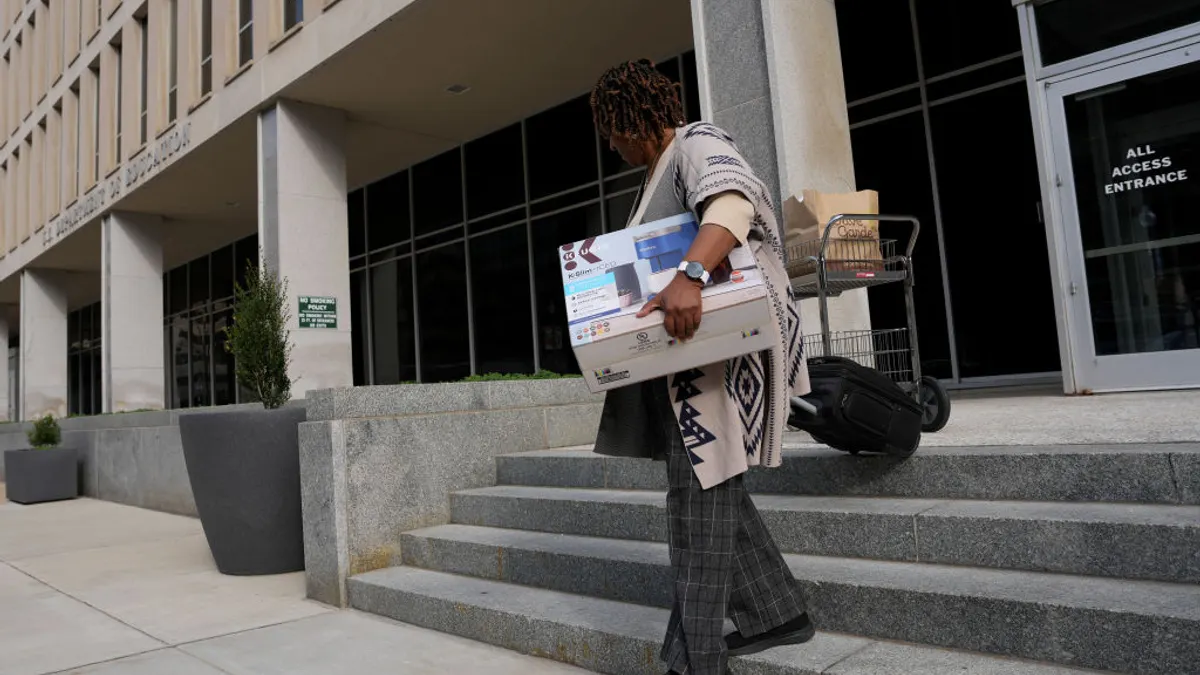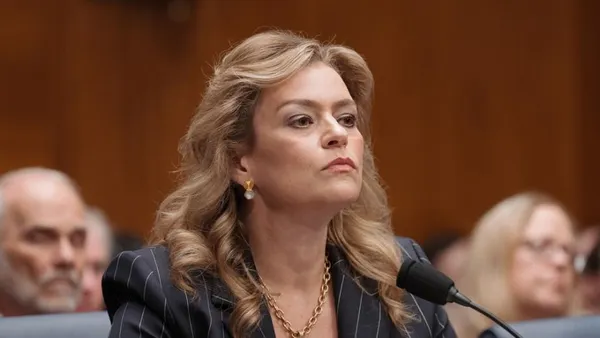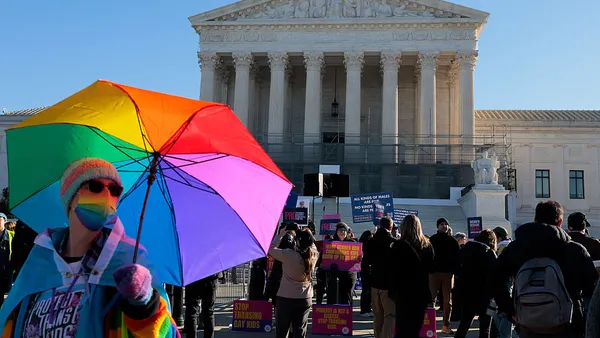Dive Brief:
-
A large majority of financial aid administrators, 72%, say they’ve experienced “noticeable changes” in the Federal Student Aid office’s communications, responsiveness and processing timelines since the U.S. Department of Education’s mass layoffs in March.
-
That’s according to a July survey conducted by the National Association of Student Financial Aid Administrators. The results also show that “federal support channels for students are breaking down,” including through issues with call centers, NASFAA said.
-
These disruptions are hampering colleges’ ability to assist students, it said. “Unless federal service channels stabilize, the aid system risks becoming less accessible, less predictable, and less trusted by the very students it is intended to serve,” it added.
Dive Insight:
When the Education Department moved to lay off roughly half its staff in March, student advocates voiced concerns that the agency wouldn’t have enough workers to carry out core functions, including financial aid services.
NASFAA’s survey builds on those concerns. The survey found that higher shares of financial aid administrators surveyed in July said they are experiencing delays and a lack of communication from the Education Department than those polled just two months before.
For instance, 59% of officials surveyed in May said they had experienced disruptions in the Federal Student Aid office’s responsiveness, communication and processing timelines — a number that has since jumped to 72%.
Ellen Keast, deputy press secretary at the Education Department, sharply rebuked the survey.
“It is an embarrassment for NASFAA to release a ‘survey’ that blatantly parrots falsehoods and is not representative of the higher education community nor the American people’s overwhelming charge for change,” Keast said in an emailed statement Wednesday. “Clearly, NASFAA is peddling a false narrative to preserve the status quo.”
An Education Department official accused the survey of having methodological shortcomings. The official pointed to the survey’s response rate — completed by over 549 institutions — saying that represents less than 10% of the roughly 5,800 colleges that work with Federal Student Aid.
The official also said questions spurred respondents to report negative experiences and that those polled were overrepresented by administrators working at nonprofit and public four-year colleges, which the agency accused as being the most likely to oppose the Trump administration.
Additionally, the official said the mass layoffs did not impact FAFSA staff or Federal Student Aid’s ability to serve customers.
Melanie Storey, president and CEO of NASFAA, said in a statement that the survey reflects “the real, everyday experiences of financial aid professionals.”
“To dismiss these concerns as fabricated or political undermines the expertise of those working directly with students every day, eager to deliver on the promise of postsecondary education, and shows that the administration is not interested in working with experts in the field to achieve the best results for students; instead, it is focused on advancing its own agenda,” Storey said.
In the survey, 32% of respondents said they’ve experienced processing delays for the Free Application for Federal Student Aid since May.
Earlier this month, the Education Department began beta-testing for the 2026-27 FAFSA form. So far, more than 1,000 students have completed the form, according to a department official.
Meanwhile, 49% of financial aid administrators have experienced processing delays with the e-App, the application colleges submit to the Education Department to participate in federal financial aid programs. Among colleges that submitted the e-App, 63% said in July that it still had not been processed.
More students are reaching out to their financial aid offices, according to the survey. Sixty percent of administrators said they’ve seen spikes in student questions about the Education Department’s services in the July poll, compared with 45% who said the same in May.
While several respondents said students were confused about the FAFSA process or federal aid, not all officials specified whether the inquiries were related to the Education Department’s mass layoffs or other recent federal changes.
Republicans recently made sweeping changes to the student loan system through their massive domestic policy bill signed into law in July. That includes consolidating the student loan repayment programs into just two options and phasing out Grad PLUS loans, which allow graduate and professional students to borrow up to the cost of attendance.
Critics have noted that the Education Department will have to carry out the vast policy changes mandated by the bill with about half the workforce it had before President Donald Trump retook office.
U.S. Education Secretary Linda McMahon has framed the layoffs as the first step to Trump’s goal of eliminating the Education Department and shifting its duties elsewhere — a change that would require congressional approval.
A federal judge initially blocked the Education Department’s mass layoffs, but the U.S. Supreme Court lifted that order in July while litigation challenging their legality proceeds.










